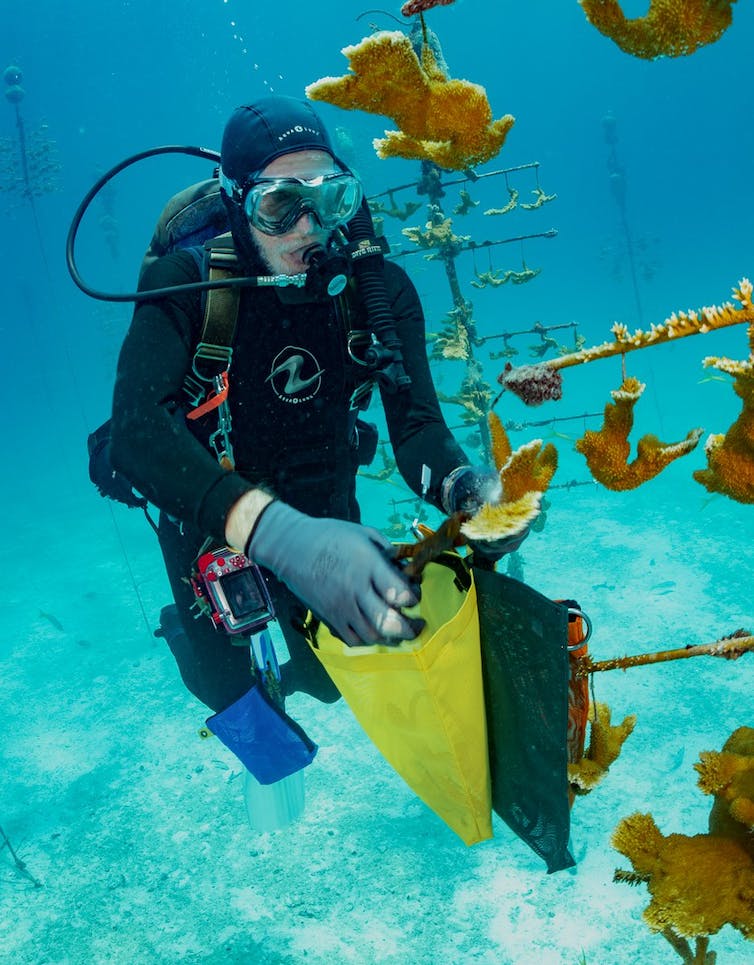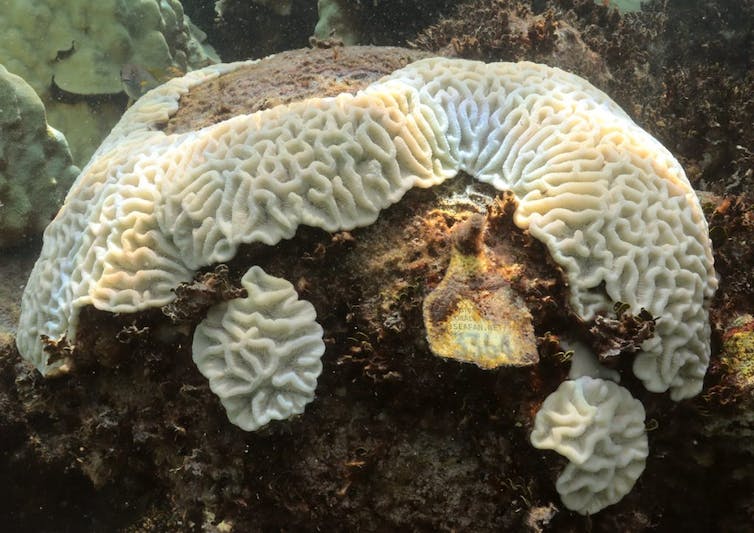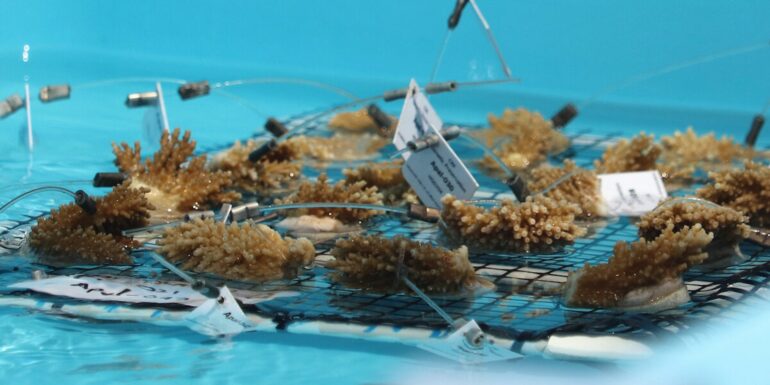Armed with scrub brushes, young scuba divers took to the waters of Florida’s Alligator Reef in late July to try to help corals struggling to survive 2023’s extraordinary marine heat wave. They carefully scraped away harmful algae and predators impinging on staghorn fragments, under the supervision and training of interns from Islamorada Conservation and Restoration Education, or I.CARE.
Normally, I.CARE’s volunteer divers would be transplanting corals to waters off the Florida Keys this time of year, as part of a national effort to restore the Florida Reef. But this year, everything is going in reverse.
As water temperatures spiked in the Florida Keys, scientists from universities, coral reef restoration groups and government agencies launched a heroic effort to save the corals. Divers have been in the water every day, collecting thousands of corals from ocean nurseries along the Florida Keys reef tract and moving them to cooler water and into giant tanks on land.
Marine scientist Ken Nedimyer and his team at Reef Renewal USA began moving an entire coral tree nursery from shallow waters off Tavernier to an area 60 feet deep and 2 degrees Fahrenheit (1.1 Celsius) cooler. Even there, temperatures were running about 85 to 86 F (30 C).

Marine scientist Ken Nedimyer collects still-healthy elkhorn coral fragments for moving. The tree structure keeps the corals free of harmful algae.
Reef Renewal USA
Their efforts are part of an emergency response on a scale never before seen in Florida.
The Florida Reef – a nearly 350-mile arc along the Florida Keys that is crucial to fish habitat, coastal storm protection and the local economy – began experiencing record-hot ocean temperatures in June 2023, weeks earlier than expected. The continuing heat has triggered widespread coral bleaching.

A bleached mound of coral at the Cheeca Rocks monitoring site in the Florida Keys National Marine Sanctuary that had been previously tagged shows the coral skeleton.
NOAA AOML
While corals can recover from mass bleaching events like this, long periods of high heat can leave them weak and vulnerable to disease that can ultimately kill them.
That’s what scientists and volunteers have been scrambling to avoid.
The heartbeat of the reef
The Florida Reef has struggled for years under the pressure of overfishing, disease, storms and global warming that have decimated its live corals.
A massive coral restoration effort – the National Oceanic and Atmospheric Administration’s Mission: Iconic Reef – has been underway since 2019 to restore the reef with transplanted corals, particularly those most resilient to the rising temperatures. But even the hardiest coral transplants are now at risk.



